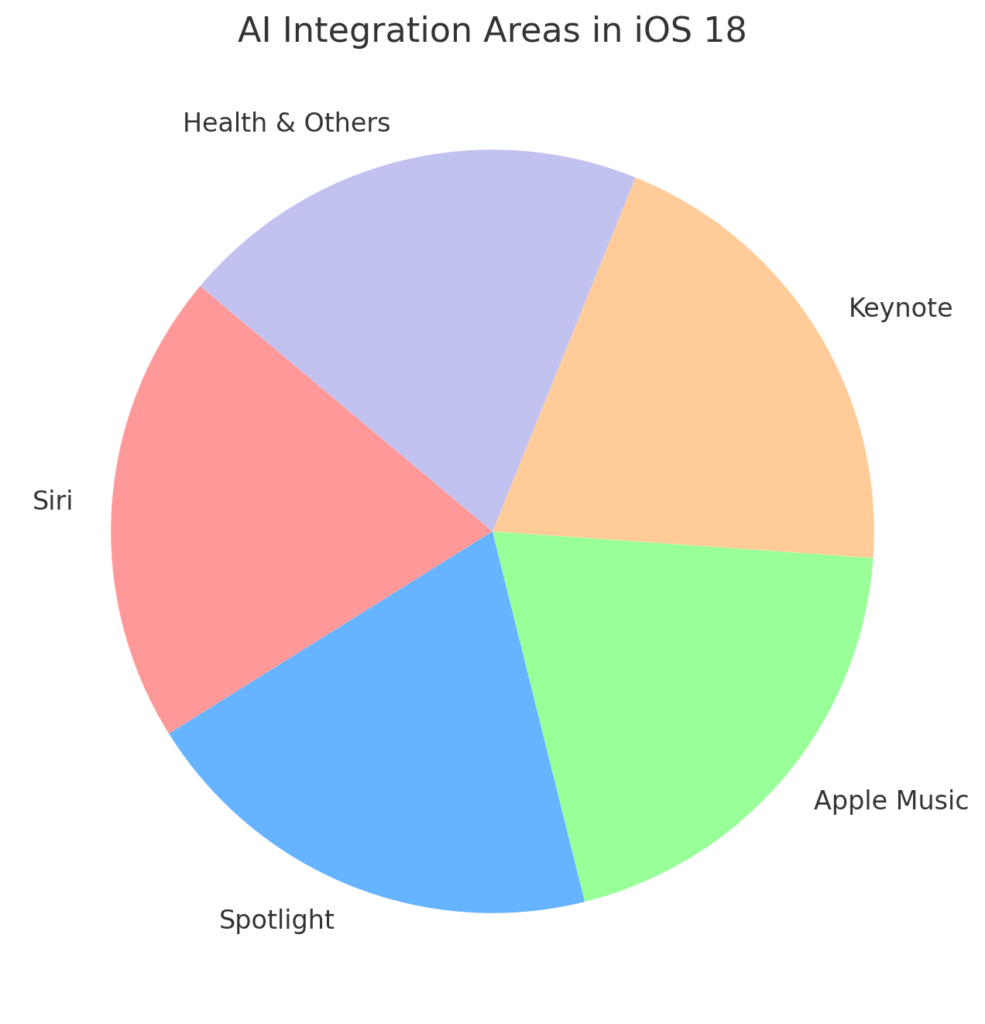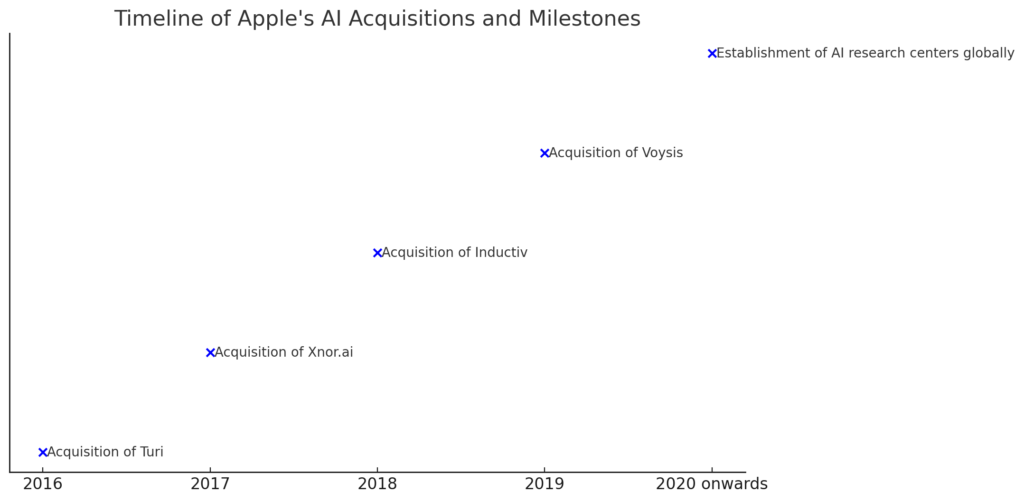Apple’s upcoming iOS 18 update is set to revolutionize the iPhone experience with a slew of new AI features, potentially including a partnership with Anthropic, the AI startup behind the impressive Claude 3 model. As the tech giant explores collaborations with major players like OpenAI and Google, the integration of cutting-edge AI technology could redefine how users interact with their devices.
What to Expect from iOS 18’s AI Features

According to Bloomberg’s Mark Gurman, iOS 18 and iPadOS 18 will introduce a range of AI-powered enhancements across various apps and features, making it one of the most significant updates in the iPhone’s history. Some of the expected AI improvements include:
| Feature | Expected AI Enhancements |
|---|---|
| Siri | Improved ability to answer complex questions accurately |
| Spotlight | Deeper integration with specific app functions and features |
| Apple Music | Automatic playlist generation |
| Keynote | AI-assisted presentation slide creation |
| Health, Messages, Numbers, Pages, Shortcuts | Deeper AI integration for enhanced functionality |
These AI-driven features aim to provide users with a more intuitive and personalized experience, streamlining tasks and making the iPhone an even more powerful tool in daily life.
Anthropic’s Potential Role in iOS 18
Among the AI companies rumored to be in discussions with Apple, Anthropic has emerged as a strong contender alongside OpenAI and Google. Anthropic’s Claude 3 suite of AI models has demonstrated impressive capabilities, outperforming rival models like GPT-4 and Gemini 1.0 Ultra in various benchmark exams.
The potential inclusion of Anthropic’s technology in iOS 18 could allow Apple to leverage Claude 3’s multimodal AI, which can respond to both text and images, further enhancing the iPhone’s AI-driven functionalities. This collaboration would align with Apple’s broader strategy to enrich the iOS ecosystem with advanced AI features that redefine user interactions with their devices.
Apple’s AI Ambitions: A Closer Look
Apple’s interest in AI is not new, but the company has been ramping up its efforts in recent years. In 2016, Apple acquired Turi, a machine learning platform, and has since made several other AI-related acquisitions, including Xnor.ai, Inductiv, and Voysis.

These acquisitions have allowed Apple to expand its AI capabilities and develop new features for its devices. For example, the integration of Voysis’ technology has led to improvements in Siri’s speech recognition and natural language processing abilities.
In addition to acquisitions, Apple has also been investing heavily in its own AI research and development. The company has established several AI research centers around the world, including locations in Seattle, Pittsburgh, and Cambridge.
The Impact of AI on the iPhone User Experience
The integration of advanced AI features in iOS 18 is expected to have a significant impact on the iPhone user experience. With more intelligent and intuitive features, users will be able to accomplish tasks more efficiently and enjoy a more personalized experience.
For example, the AI-powered enhancements to Siri could allow users to ask more complex questions and receive more accurate and relevant answers. The deeper integration of AI in apps like Messages and Health could provide users with more valuable insights and recommendations based on their behavior and preferences.
Moreover, the potential inclusion of Anthropic’s multimodal AI technology could open up new possibilities for how users interact with their devices. The ability to respond to both text and images could enable more natural and conversational interactions, making the iPhone feel more like a personal assistant than ever before.
The Competitive Landscape of AI in Mobile Devices
Apple is not the only tech giant investing in AI for mobile devices. Its competitors, including Google and Samsung, have also been incorporating AI features into their smartphones and tablets.
Google’s Android operating system has long included AI-powered features like Google Assistant, which uses natural language processing and machine learning to understand and respond to user queries. Similarly, Samsung’s Bixby assistant offers a range of AI-driven capabilities, including voice recognition and image processing.
However, Apple’s tight integration of hardware and software, combined with its focus on user privacy, could give the company an edge in the AI race. By developing AI features that are deeply integrated with the iPhone’s hardware and operating system, Apple may be able to offer a more seamless and secure user experience.
The Future of AI in iOS and Beyond
The potential inclusion of Anthropic’s AI technology in iOS 18 is just the beginning of Apple’s AI journey. As the company continues to invest in AI research and development, we can expect to see even more advanced features in future versions of iOS and other Apple operating systems.
In the coming years, AI could play an increasingly important role in how we interact with our devices, from smartphones and tablets to wearables and smart home devices. As Apple and other tech giants continue to push the boundaries of what’s possible with AI, we can look forward to a future where our devices are more intelligent, intuitive, and personalized than ever before.
Conclusion
The rumored inclusion of Anthropic’s AI technology in iOS 18, along with Apple’s ongoing efforts to enhance its AI capabilities, marks a significant milestone in the evolution of the iPhone and the broader Apple ecosystem. As users eagerly await the official announcements from Apple and its AI partners, the promise of a more intelligent, intuitive, and personalized mobile experience looms on the horizon.
While the specific details of iOS 18’s AI features remain speculative, one thing is certain: the integration of cutting-edge AI technology will forever change the way we interact with our devices, ushering in a new era of innovation and convenience. As Apple continues to invest in AI research and development, we can expect to see even more exciting developments in the years to come.














